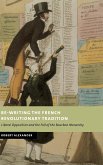How did the ideals of liberty, equality and fraternity evolve out of the corporate structure of the Old Regime in France? This study investigates the evolution of a new ideal in polity in 1789 and the reaction of French society to it. Concentrating especially on the restructuring of the administration and judiciary, the author argues that the new political structure created by the constitution of 1791 was the most equitable and participatory national political system in the world. In particular, by the standards of the eighteenth century, the polity enacted by the National Assembly was more inclusive than exclusive, and the Constitution of 1791 was much more of an object of consensus than has been acknowledged. Challenging criticisms of the Assembly and the constitution, The Remaking of France argues that the achievements of the National Assembly deserve greater recognition than they have traditionally received.
Table of contents:
Preface; Part I. 1. The crisis of the Old Regime; 2. The formation of the new ideal of the polity; 3. The achievement of the new ideal of the polity; 4. The new ideal of the polity reaffirmed; Part II. 5. The reception of the new ideal of the polity; 6. The realization of the new ideal of the polity; 7. Rallying to the new ideal of the polity; Conclusion; Appendix; Bibliographical note and list of manuscript sources.
This book examines the National Assembly's restructuring of the French state between 1789 and 1791. Focusing on the administration and judiciary, it challenges traditional assessments of the National Assembly and its work and addresses the central debate about the nature of the French Revolution.
This book examines the National Assembly's restructuring of the French state between 1789 and 1791.
Hinweis: Dieser Artikel kann nur an eine deutsche Lieferadresse ausgeliefert werden.
Table of contents:
Preface; Part I. 1. The crisis of the Old Regime; 2. The formation of the new ideal of the polity; 3. The achievement of the new ideal of the polity; 4. The new ideal of the polity reaffirmed; Part II. 5. The reception of the new ideal of the polity; 6. The realization of the new ideal of the polity; 7. Rallying to the new ideal of the polity; Conclusion; Appendix; Bibliographical note and list of manuscript sources.
This book examines the National Assembly's restructuring of the French state between 1789 and 1791. Focusing on the administration and judiciary, it challenges traditional assessments of the National Assembly and its work and addresses the central debate about the nature of the French Revolution.
This book examines the National Assembly's restructuring of the French state between 1789 and 1791.
Hinweis: Dieser Artikel kann nur an eine deutsche Lieferadresse ausgeliefert werden.








